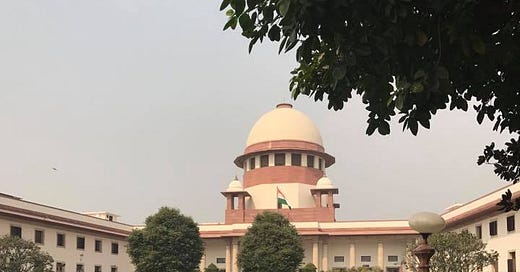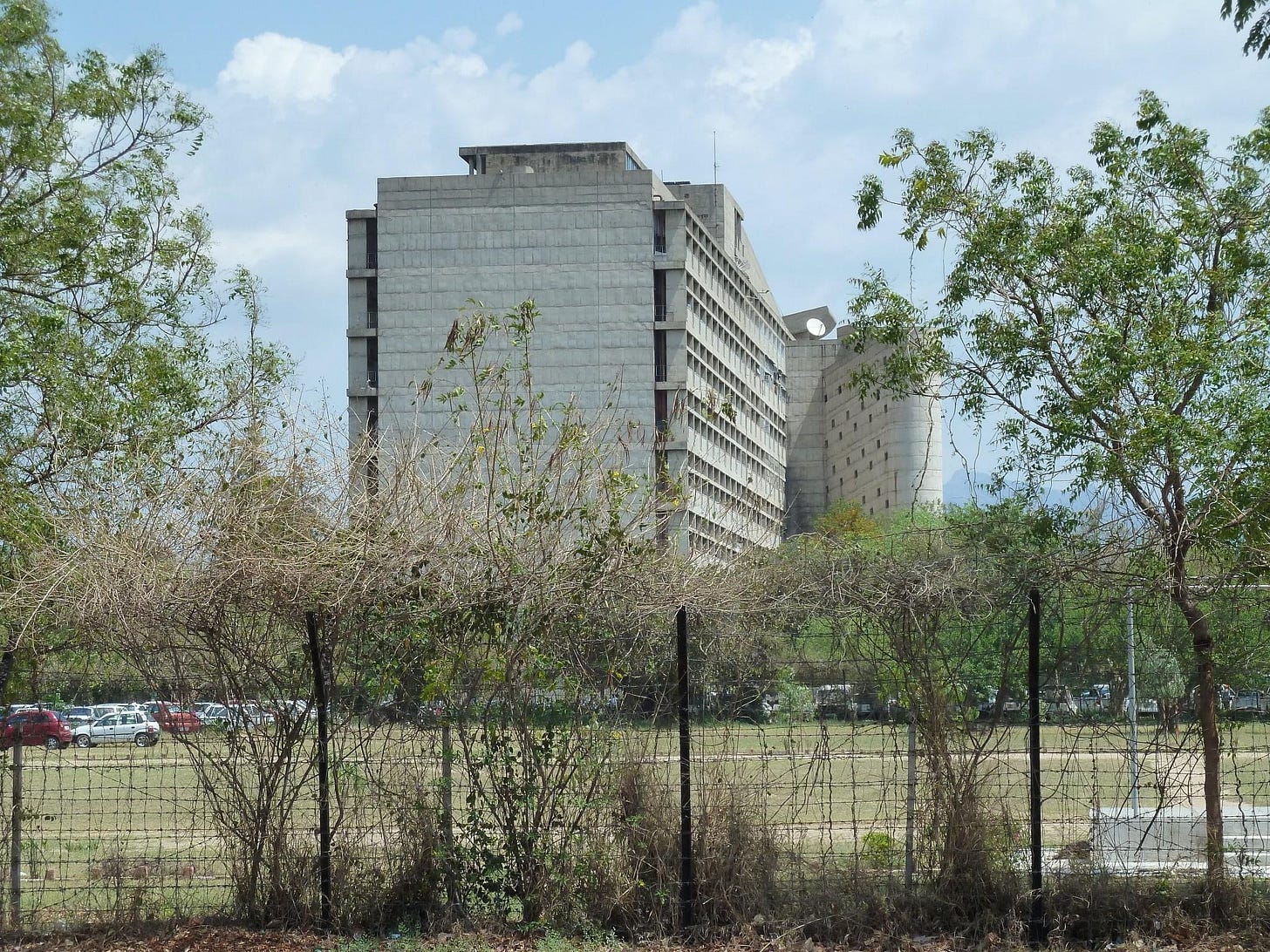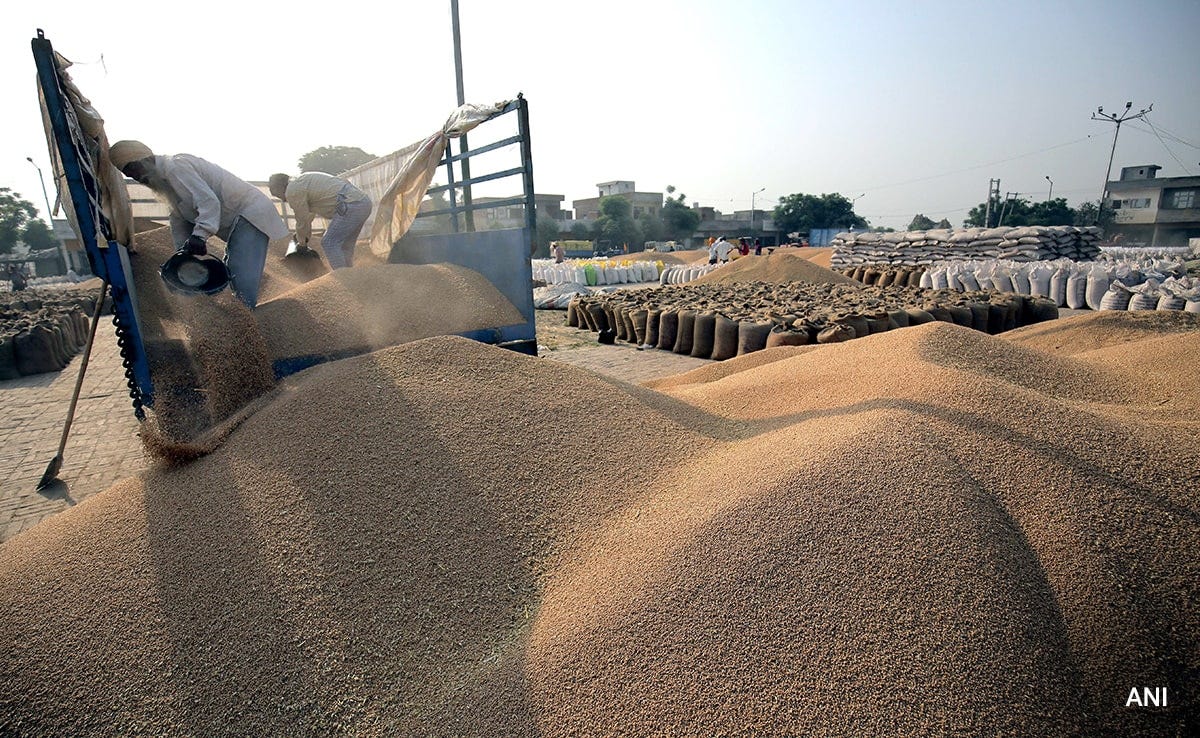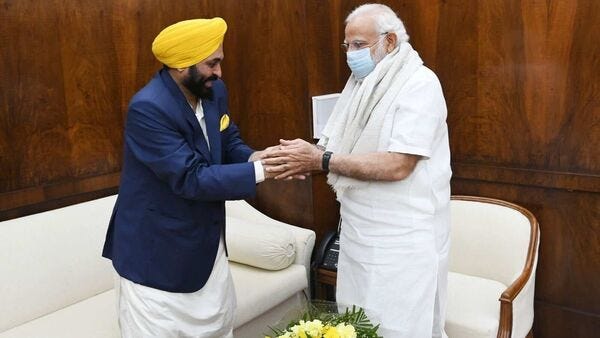Punjab Drags Central Government to the Supreme Court: Statutory Dues of Over ₹6000 Crore for Food Procurement at Stake
According to the claim, Rural Development Fund (RDF) dues amount to Rs 3,637 crores overdue since 2021, and market fees to the tune of Rs 2,400 crores are pending since 2022.
Punjab Seeks Early Hearing in Supreme Court
In a decisive legal manoeuvre, the Punjab Government has submitted an application to the Supreme Court of India, requesting an early hearing of the lawsuit it had filed in July 2023 against the Union of India. This protracted dispute centers on the Central Government's continued refusal to release full statutory dues relating to the procurement of wheat and paddy by the Food Corporation of India (FCI), effected to ensure food security in the country. With these unpaid fees and taxes accumulating over several years—and escalating with each harvest—the state's financial strain has deepened, particularly after the cessation of the GST compensation scheme in June. This dire situation has compelled Punjab to take this extraordinary legal step.
Urgent Plea for Release of Funds
The State of Punjab, represented by Additional Advocate General Shadan Farasat, has filed an application seeking the urgent release of funds from the Union under the its claimed dues of Market Fees and Rural Development Fees (RDF). During a Supreme Court hearing, Farasat urged Chief Justice DY Chandrachud for an early listing of the interim application. He emphasized the critical need for funds, stating, "We are only requesting if the IA (Interlocutory Application) may be listed next week if possible. There is an urgent need for funds. If in August it will be possible." In response, the Court agreed to list the matter for an early hearing.
Continuation of a Long Legal Battle
This application forms part of the original suit filed last year by the Punjab Government, in which it has been alleged the Union of India was refusing reimbursement of the statutory charges for RDF and Market Fees. As detailed in the suit, these charges are levied by the State of Punjab for the acquisition and procurement of food grains carried out on behalf of the Union, essential for ensuring food security in India. According to the claim, RDF dues amount to Rs 3,637 crores overdue since 2021, and market fees to the tune of Rs 2,400 crores are pending since 2022. These figures highlight the substantial financial burden faced by the state in the absence of these funds.
Current Status of the Matter
The legal journey has reached a crucial phase as:
Punjab has officially filed an application in the Supreme Court to demand the urgent release of these funds.
On the latest hearing date, Punjab’s Additional Advocate General highlighted the urgency of the matter to Chief Justice DY Chandrachud.
Subsequently, the Supreme Court has scheduled an early hearing, marking a significant move towards resolving this financial impasse.
Central Government's Objections
The standoff with the Central Government and FCI is rooted in several key objections:
Constitutional Powers: The Centre defends its stance to cap fees at 2% of MSP, citing constitutional rights, whereas Punjab views this as an encroachment on its legislative powers to set agricultural and market-related fees.
Modified Fixation Principles: Punjab contends that the Centre's current fee cap contradicts the Modified Fixation Principles, which affirm the state’s autonomy in fee determination.
Compliance Issues: Despite Punjab’s claims of adhering to central directives to amend the Punjab Rural Development Act,1987, the Centre continues to withhold funds.
Financial Implications: The reduction in statutory charges has severe repercussions for Punjab's rural infrastructure and economy, potentially crippling the Punjab State Agricultural Marketing Board's ability to repay infrastructure development loans.
Market Fee as a Quid Pro Quo Arrangement
In the nuanced fiscal landscape of Punjab, the distinctions between market fees and taxes play a critical role, especially post the introduction of the Goods and Services Tax (GST) regime. Market fees, as argued by the State of Punjab, are not taxes but rather are fees levied in exchange for specific services provided by state mandis during the procurement process. This fee, mandated by state legislature law, is payable by the purchaser and is considered a quid pro quo for the facilities offered, such as infrastructure and regulatory oversight during procurement activities.
Distinct Nature of the Rural Development Fund (RDF)
Similarly, the Rural Development Fund (RDF) is distinguished from general taxation as it is directly associated with the ad valorem purchase of food grains in the state mandis. The funds collected under RDF are earmarked exclusively for rural development initiatives within the state, underscoring their pivotal role in sustaining agricultural infrastructure and community welfare. This fee is also the liability of the purchaser, reinforcing the state’s legal framework that supports these charges.
Non-Subsumption of Fees Under GST
Notably, both the market fee and the RDF were not subsumed under the GST when it was implemented nationally in 2017. This was unlike other levies such as the purchase tax and State VAT, which were integrated into the GST framework. The continued imposition of these fees post-GST highlights their unique status as essential components of the state's fiscal strategy, specifically designed to bolster local agricultural and rural development. This distinction is central to Punjab's ongoing legal and financial disputes with the Central Government, as the state seeks to uphold its legislative rights and financial autonomy in the face of broader national tax reforms.
Escalation to the Supreme Court: A Bold Move by Punjab's AAP Government
This ongoing dispute not only underscores the intricate federal dynamics within India but also highlights the financial and administrative challenges faced by state governments in managing and collecting their statutory dues, where the alleged defaulter is the Central government. The previous state governments of Punjab, led respectively by Sardar Parkash Singh Badal and Captain Amarinder Singh, attempted to recover these dues through petitions, prayers, and bilateral lobbying. However, it was the AAP Government in Punjab, led by Chief Minister Sardar Bhagwant Mann, that took the bold initiative to arraign the Central Government in the Supreme Court after the futility of negotiations became apparent. With the matter now escalated to the Supreme Court, its outcome is set to have far-reaching implications on center-state relations and agricultural policies nationwide, especially as the inability or reluctance of the central government to place crop procurement on a statutory basis continues to trigger various farmers' agitations.







